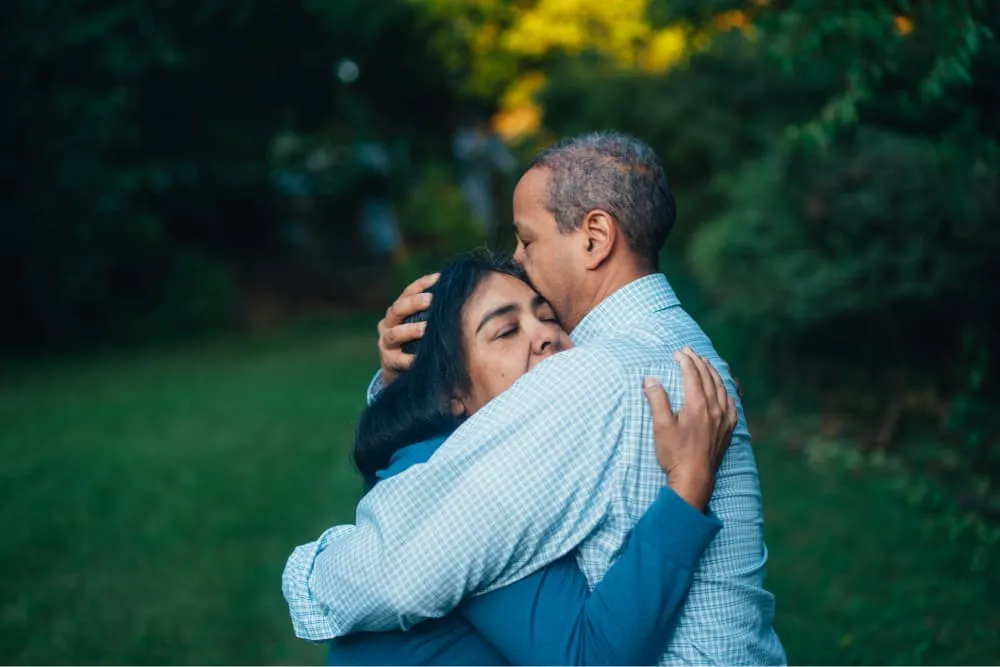How to choose the right treatment for you: REDC Guidelines
At Within, we are honored to have collaborated with the REDC in putting together their standards of remote eating disorder treatment guidebook. These guidelines help people understand important factors and quality of care indicators when considering virtual eating disorder treatment program options. They also help patients and families assess what is right for their individual circumstances, and what might best serve them in their journey toward recovery.
Within is proud to offer intentionally remote eating disorder treatment of the highest standard to our patients.
Read the guidelines
Individualized treatment plans
The best eating disorder treatment programs tailor your treatment plan to meet your unique needs. At intake, you will complete an assessment, which evaluates the biological, psychological, and sociological factors that affect your eating disorder. Your treatment team will then use this information to guide your treatment planning. These plans aren’t static either—they may change throughout the course of your program once your clinicians can begin to assess what works and doesn’t work for you.
Use of evidence-based treatment modalities
It’s important to make sure a treatment program uses evidence-based treatment modalities, such as cognitive behavioral therapy (CBT), acceptance and commitment therapy (ACT), dialectical behavior therapy (DBT), and exposure therapy. In addition to psychotherapy, psychiatric medications may be helpful for some. These types of therapies and treatments have been backed by scientific evidence and proven to be effective in treating eating disorders.1
Culturally-responsive treatment providers
One of the biggest barriers to eating disorder care for marginalized individuals, including people of color, disabled individuals, and queer, trans and intersex folks, is the lack of culturally responsive care among treatment programs and providers. Culturally responsive care acknowledges the intersectionality of mental health and eating disorders and respects and celebrates a person’s background and identity as well as values diversity.
Accreditation of eating disorder treatment programs
Accreditation from regulatory organizations like the Commission on Accreditation of Rehabilitation Facilities (CARF) and Joint Commission on Accreditation of Healthcare Organizations (JCAHO) show that a treatment program has been through a rigorous assessment to ensure its quality of care and use of evidence-based practices.
Appropriate staff credentialing
A large part of ensuring that you choose a high-quality eating disorder treatment program is discerning the credentialing of the staff. When scanning the staff list, you’ll want to look for staff credentials, such as:
- Psychologist (Psy.D or PhD)
- Registered Nurse (RN)
- Psychiatric Nurse Practitioner (PMHNP-BC)
- Licensed Clinical Social Worker (LCSW)
- Licensed Marriage and Family Therapist (LMFT)
- Registered Dietician Nutritionist (RDN)
- Psychiatrist (M.D.)
- Licensed Professional Counselor (LPC)
- Licensed Mental Health Counselor (LMHC)
- Registered Dietician
Integrated and comprehensive treatment
Eating disorder treatment programs should be equipped to treat co-occurring mental health conditions such as depression, anxiety, post-traumatic stress disorder (PTSD), obsessive compulsive disorder (OCD), and borderline personality disorder if they have the training to do so. If you have a dual diagnosis, having providers that have training to address all your mental health conditions will make disordered eating behaviors treatment most effective.
Offers aftercare planning
Aftercare involves ongoing support to build upon what you learned in treatment and help prevent relapse. Aftercare can involve many things, such as:
Everyone’s needs are different; what works for one person may not work for you, but the important thing is that your treatment program creates an individualized aftercare plan you can follow post-treatment.
Alumni support network
Many treatment programs offer alumni support networks for graduates of their program to keep in touch and provide each other with encouragement, empowerment, and emotional support. Having a support system in place after treatment can help prevent relapse and provide you with all the benefits of community.
Financing options
Many eating disorder treatment programs offer financing options, such as sliding scale fees, payment plans, and treatment scholarships, to help reduce the financial burden of paying for care. If cost is a concern, look for a program that’s willing to work with you or look into organizations that offer scholarships to individuals under or uninsured people with eating disorders.
Fosters community
Whether the treatment program is in-person or virtual, community can be an essential part of healing and eating disorder recovery, providing people with a sense of purpose and feeling of belonging as well as much-needed support and care.
Why you should consider Within Health’s program
Within Health is a virtual eating disorder treatment program that provides the high level of care of a partial hospitalization program, with the flexibility of outpatient care, allowing you to recover from an eating disorder like anorexia nervosa or bulimia on the schedule that works best for you and your obligations.
Through our easy-to-use and highly intuitive treatment app, you can access your individual therapy sessions, group counseling sessions, experiential activities like art therapy or movement groups, therapeutically supported meals, meetings with your Care Partner, self-reporting and check-ins, and much more.
Within Health offers inclusive, culturally responsive care for those who may have had a previous negative experience at an in-person program or for those who have been apprehensive about treatment due to fears of discrimination, stigma, and prejudice. We cultivate a respectful, dignified, client-centered environment for people of all backgrounds, experiences, body shapes and sizes, including:
- People living in larger bodies
- Members of the LGBTQ+ community
- Black, Indigenous, and people of color
- Disabled people and those with chronic illnesses
We also take an intersectional approach to eating disorder recovery, recognizing that multiple social identities influence one another and can increase the likelihood of disparity and discrimination as well as mental health conditions like eating disorders. People sitting at the intersection of two or more marginalized identities can feel comfortable knowing that their treatment will be tailored to suit their unique needs and will evaluate their disorder within their cultural context. Plus, we prioritize hiring a diverse staff so that patients will see themselves reflected in their care.
At Within Health, our goal is to close the treatment gap so that everyone can get the eating disorder care they need. We will work with our clients to outline your options for eating disorder care, within your financial needs. Speak with our team today to learn more about our specialized treatment programs for eating disorders.





















































